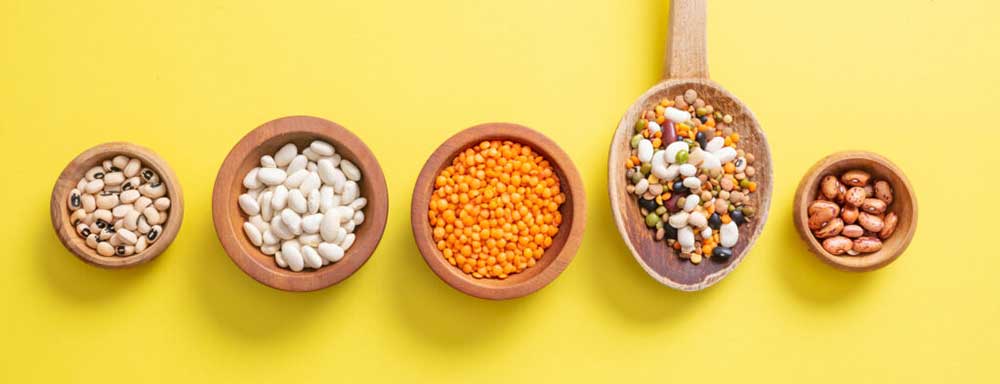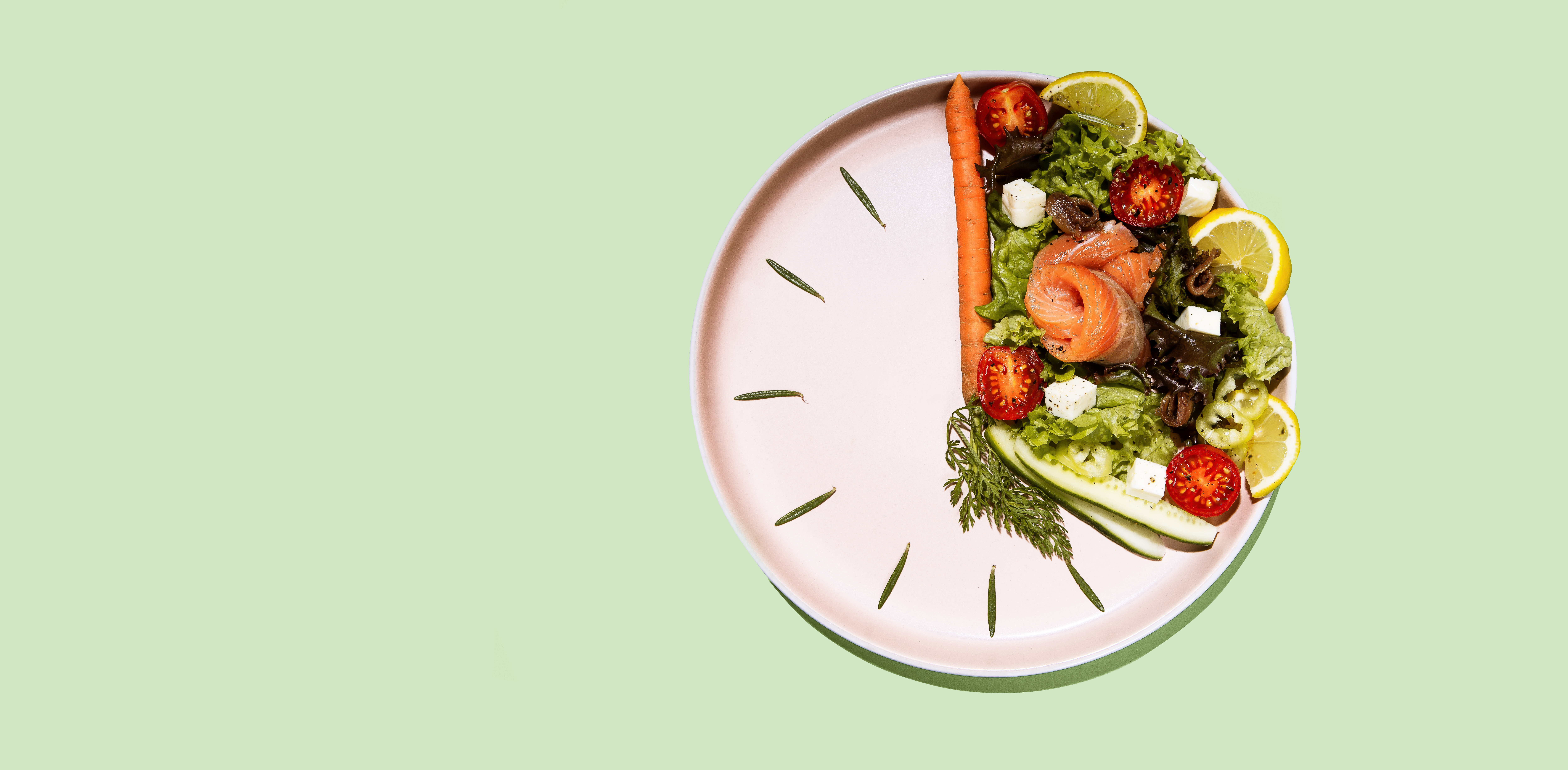Whether it’s bloating, constipation, or general abdominal discomfort, we know that digestive issues can negatively impact daily life. We’re here to help you understand some common causes and explore approachable strategies to improve your symptoms and optimize your overall digestion.
When we’re looking for ways to improve digestion, there are many things to consider, including diet, movement, and stress management. These lifestyle factors affect inflammation levels, gut motility (or movement), and the gut microbiome (the collection of gut bacteria in the digestive tract), all of which contribute to our overall gut health and ability to effectively digest and absorb nutrients from food.
While there are general, modifiable lifestyle factors to consider, there is no one-size-fits-all approach to healthy digestion, as we are all unique in our dietary needs and food tolerances. Therefore, listening to your body is key to understanding what works for you and what doesn’t. Food journaling can be an effective tool in identifying potential triggers of irregular digestive symptoms, which can help inform how to adjust your diet to suit your needs.
Symptoms of poor digestion include bloating, irregular bowel movement (like constipation or diarrhea), acid reflux, and abdominal pain or discomfort. It is important to note that if you are experiencing persistent gastrointestinal symptoms and pain, we recommend consulting a healthcare professional to assess for a potential underlying diagnosis, such as irritable bowel syndrome (IBS), Inflammatory Bowel Disease, or specific food allergies.
We understand that it can feel overwhelming to tackle digestive issues, so we’ve gathered the top tips from our team of experienced registered dietitian nutritionists to guide you through modifications to help improve your digestion.
1. Eat Whole Foods for Digestive Health
One of the best things you can do for your digestive health is to eat whole food and avoid processed food. Our bodies run optimally on real food that the digestive system recognizes. Whole foods have naturally occurring compounds that our body has the ability to break down and absorb effectively, including proteins, fats, carbohydrates, vitamins, minerals, and antioxidants.
When foods are highly processed, moving away from their more natural state, they typically lack these readily digestible components and can come with additives that our body has a more difficult time processing. Regularly consuming highly processed food high in saturated fats added sugars, artificial sweeteners, preservatives, and other additives can negatively affect our digestive system by disrupting our gut microbiota and increasing inflammation. Aim to incorporate fresh fruits, vegetables, fish, meats, eggs, whole grains, nuts, seeds, and beans into your diet.
2. Include Fiber, But Not Too Much
Fiber is the indigestible part of plants that helps form and move waste in the body so that it can be properly eliminated. There are two types of fiber – soluble and insoluble fiber. They each perform different functions, and you need a mix of both. Soluble fiber attracts water and forms a gel-like substance in the body. This helps slow digestion, making you feel fuller longer and has even been shown to help lower heart disease risk and improve blood sugar management.
You can find soluble fiber in oats, barley, seeds, nuts, beans, and certain fruits like apples and vegetables like potatoes. Insoluble fiber works to bulk up your stool and helps food pass through the digestive tract. Find insoluble fiber in vegetables, fruits, and whole grains. Don’t worry about how much of each type of fiber you are getting daily for optimal digestion. Just aim for a variety of fiber from different whole foods.
Fiber also helps maintain strong gut health since it is the main source of food for the microbes in our intestines. Species of bacteria differ in their ability to break down certain types of dietary fiber. Therefore, consuming many types of plant foods provides a favorable environment for a variety of bacteria to thrive. There is growing evidence that the composition of the microbiome, impacted by dietary choices, can alter the host’s metabolism and gene expression, which may support or hinder weight loss, and disease progression.
So how much fiber do you need? Women need at least 25 grams a day, and men need 38 grams a day. For good digestion, you want to eat at least the recommended amount. But before you go on an all-out fiber kick — take caution. Eating excess fiber can make your digestive symptoms worse. The best way to increase your fiber intake is to do it gradually from whole food sources and make sure you are hydrating adequately.
The bottom line? Eat a healthy diet consisting of a variety of plant foods with different types of fiber in them!
3. Drinks Lots of Water
Water keeps the food and fiber moving through your intestines, helping to promote regular bowel movement. If you are dehydrated, your large intestine will soak up fluids from your digestive waste, which will make your stool harder to pass.
Individual hydration needs vary depending on height, weight, age, climate, physical activity, and overall health status. In general, it’s a good starting point to aim for about 10 glasses of fluids a day. Our advice is to invest in a 1 liter water bottle and fill it three times a day. Make drinking water more fun by adding some frozen fruit as flavored “ice cubes,” lemon, or fresh herbs.
4. Carefully consider probiotics and other supplements
We are only just beginning to understand the many benefits that probiotics have when it comes to our health. Probiotic-rich foods are the best place to start, as research shows our body can optimally utilize their probiotic strains, and they come with added nutrients. Try adding fermented foods like sauerkraut, kimchi, yogurt, coconut yogurt, tempeh, and miso to your diet.
If you are having trouble adding a variety of probiotic foods to your diet or want a boost, you can consider adding a probiotic supplement to your routine. It is important to note that each individual’s gut microbiome is unique, so the effects of supplementation may vary. Some research suggests that supplementing with probiotics can disrupt the natural homeostatic balance of microorganisms in your gut, which can have negative effects. Everyone is different, so a registered dietitian nutritionist can help navigate which strains may work best for you.
A magnesium supplement, specifically magnesium citrate, can help hydrate the colon and get things moving, which may be helpful for those experiencing constipation. Consider working with a registered dietitian nutritionist to discuss if this may be a good option for you.
5. Improve Your Mood to Reduce Stress and Help Digestion
Bacteria in your intestines help produce about 95 percent of the serotonin supply your body uses to regulate mood and gastrointestinal function. Serotonin affects mood, which is why it is often known as the happiness hormone. Maintaining good gut health may improve your mood and mental health.
On the flip side, your mental status may impact your gut. For instance, stress can greatly impact digestion, either delaying or speeding up the process. Therefore, activities that improve mood and reduce stress can help improve digestion. Yoga, physical activity, meditation, and breathing exercises may help to mitigate stress and therefore improve digestion. Pick something you like and can stay consistent with — even 5-10 minutes of deep breathing a day can have enormous benefits. Also, consider dietary modifications that can help to reduce your anxiety, like balancing your blood sugar, getting adequate b-vitamins and magnesium, and optimizing meal timing.
6. Move Daily
Physical activity can help to keep things moving in the gastrointestinal tract, as it stimulates gut motility. This can be particularly helpful for those experiencing bloating and constipation. Exercise may also help improve your gut bacteria’s composition, further optimizing your digestive health. Incorporating daily walks can be a good place to start, in addition to adding more formal exercise, including cardio and strength training.
The Bottom Line On Digestive Health
If you’re experiencing irregular digestion, there may be opportunities for lifestyle adjustments that can help to improve your digestive system. We suggest tackling these five things above, one at a time. Our team of registered dietitian nutritionists is always here to help support you through the process and develop an individualized plan that works best for you and your needs. If your digestive problem persists and is accompanied by pain, we recommend speaking to a general practitioner or gastroenterologist for a full medical evaluation.
Have more questions about digestive health? Work with a Culina Health registered dietitian nutritionist to get personalized virtual nutrition care that is covered by insurance.






